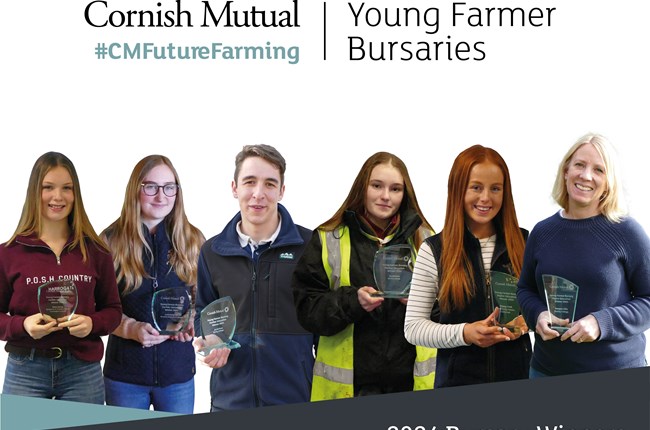
International Women’s Day: Sue Turner, Cornish Mutual Board Member
Sue Turner is a Non-Executive Director for Cornish Mutual, helping to lead the company to ensure it continues to offer the very best service to its Members. On International Women’s Day, Sue reflects on her career to date and the opportunities for women in business in the South West.
Tell us a bit about your background and career to date.
I studied Law at the University of Bristol and was the first person in my family ever to go to university. I've always aimed to keep learning and help others throughout my career, which has spanned both the not for profit and commercial sectors. In my twenties I joined the Confederation of British Industry (CBI) and became their youngest Regional Director, covering all of the South West from Truro to Tewkesbury, Bournemouth to Swindon. Talking to businesses across such a diverse region gave me a keen awareness of the different economies and drivers here.
From those roots in lobbying and taking care of members I’ve spent a large part of my career in communications, sales and marketing, including five years as Director of Communications at The Bristol Port Company – the private business that runs the docks at Avonmouth and Portbury. I am now Chief Executive of Quartet Community Foundation, a charity which helps people direct their giving to the small, often unknown groups that do such fantastic work in our communities. We have over £35 million in endowment and give over £3.5m each year to causes in Bristol, Bath and the surrounding areas. It's humbling to listen to people in the most difficult circumstances talk about their hopes and ambitions for their futures and a privilege when our philanthropy can unlock opportunities for them.
Why did you decide to join the Board of Cornish Mutual and what do you feel you bring to the role?
My grandparents were farmers in Kent and Granddad set up a building society there in the 1950s. With this family history, and my background working for not for profits, I wanted to join Cornish Mutual to share my passion for achieving growth in a responsible way. Nearly two years into the role I believe I've brought new insights into marketing and I'm very excited by the emerging new strategy which will have far reaching benefits for our farming communities.
What is the proudest moment of your career so far?
I recently held a dinner exploring the role of technology to help our most disadvantaged communities, in collaboration with the University of Bristol's new Digital Futures Institute and law firm Osborne Clarke. In the room we had a great mix of men, women and people from diverse ethnicities and backgrounds, all treated as equals, all learning from each other. I was delighted to see the high powered business leaders in the room so keen to help when they learned about how difficult other people’s lives are and just how deep the digital divide goes. I know the world isn't always equal and fair, like it was that night, but I was very proud to have very deliberately set out to contribute to the International Women's Day "Each for Equal" theme by enabling representatives of our communities to have a powerful platform to influence others.
Who or what inspires you in your work?
I got a lucky break when I was 11. I was on course to follow my older brother and sister to the local comprehensive school, where it was incredibly hard to get a good education, but I passed the entrance exam to a school in Bolton which gave me an extraordinary education. Without that I would never have gone to university and I doubt I would be doing anything like what I do today. That’s what inspires me to create opportunities for as many people as possible to fulfil their potential.
Are there any challenges you have had to overcome to get where you are today?
My motto (which drives my family mad!) is “make the best of the hand fate deals you” so I’ve always tried to turn negatives into opportunities. In my twenties I was in debt, finding it hard to make ends meet; I remember running out of money long before pay day and wondering how I would be able to eat for the rest of the month. I bundled up a pile of books (the only asset I had) and tramped round Bristol’s second hand book shops until a kind book seller took pity on me and paid me £15 for the books, which was enough to keep the wolf from the door for the rest of the month. I worked hard and eventually got into a better financial situation but the poverty trap is hard to get out of and it’s shocking that in the 21st Century that sense of dread about making money last is a regular occurrence for too many people.
What changes have you seen in attitudes towards women in senior business roles over the course of your career?
When I started work for the CBI I was the only woman at almost every meeting I went to. Being young, blonde and female it could have been hard to be taken seriously but I found most men were willing to give me a chance. I had to be well prepared though, with no second chance available. Then when I went on maternity I only had 18 weeks leave, so leaving a 15 week old baby at nursery (and going to back to work full-time with all the associated sleep deprivation!) was tough. I’m delighted when I see young people getting a much better balance now between work and home life. Women no longer have to choose between having a top career or having a family. We’re not trying to “have it all” because women still have to make choices and, often, sacrifices, but the key is that we have options and the old attitudes that kept women out of senior business roles for too long are, like the dinosaurs, fading into history.










